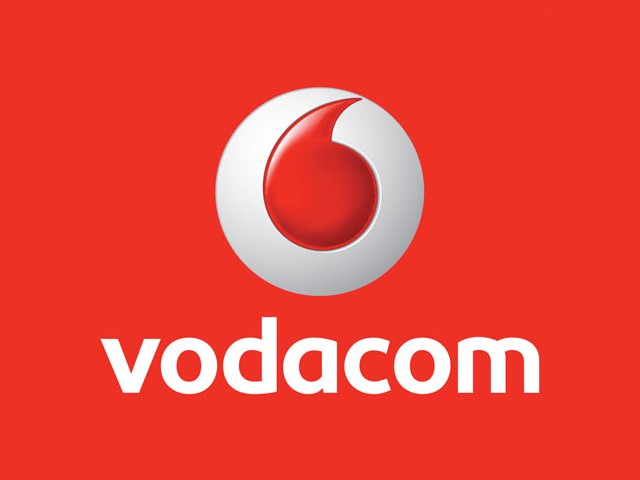Vodacom Group joins UN Global Compact
By Staff Writer 1 October 2020 | Categories: news
TechSmart News sponsored by:
In what is undoubtedly a feather in the cap for Vodacom Group, the company announced today that it has joined the United Nations Global Compact. the world’s largest corporate citizenship initiative. This makes it a membr of more than 12 000 companies from more than 160 countries on the world’s largest corporate sustainability platform.
“We are pleased to announce that we have joined the UN Global Compact (UNGC). This sustainability milestone underpins our purpose to connect for a better future. The UNGC principles on human rights, labour, the environment and anti-corruption not only complement our social contract but also our purpose-led journey to improve the lives of the next 100 million customers and halve our environmental impact by 2025,” enthused Takalani Netshitenzhe, Chief Officer of External Affairs for Vodacom South Africa.
Members of the United Nations have less than ten years left to the attainment of the Sustainable Development Goals. While the COVID-19 lockdown has slowed progress in some instances, Vodacom continues to make contributions towards good health and well-being, quality education and gender equality.
"Vodacom's contributions are in line with South Africa's National Development Plan (NDP), which aims to attain a decent standard of living by eliminating poverty and reducing inequality," continued Netshitenzhe.
Aspects of the NDP and UN Sustainable Development Goals (SDG) are related. Netshitenzhe explained that achieving goals of both frameworks is key in the attainment of sustainable development for many communities in South Africa and the rest of Africa. The use of Vodacom’s technology to achieve goals set for various sectors that include; health, gender equality, and quality education is key to advancing progress towards a more inclusive and prosperous future.
Vodacom provides mobile health solutions that support vaccination programmes, improves medicine stock control, increases awareness of health issues and sends reminders for daily medication and vaccinations. Many of these solutions came into play significantly during the COVID-19 lockdown, with Vodacom supporting critical government functions by providing health workers with access to connectivity and solutions that support remote consultations, data collection, and testing.
To support government healthcare efforts, Vodacom provided 20 000 and 1 000 devices in South Africa and Lesotho, respectively, to the Ministry of Health departments for field workers involved in testing and related data collection. "In South Africa and Tanzania, we partnered with the respective ministries of health to send awareness messages to our customers," elaborated Netshitenzhe.
Recognising the particular importance of bolstering frontline healthcare efforts, Vodacom in South Africa partnered with the medical aid provider, Discovery Health, to provide South Africans with easy access to dedicated online COVID-19 screenings and 100 000 free doctor consultations.
"In Tanzania, we donated over R18 million to the government’s COVID-19 Containment Committee for the sourcing of personal protective equipment (PPE)," she continued.
With schools being closed during the COVID-19 lockdown, Vodacom also created free access to government educational resources, as well as other educational resources recommended by the national educational authorities and academic institutions.
The availability of online learning platforms proved key to ensure continuous and uninterrupted learning, as it was evident through platforms like Vodacom e-School that surpassed the one million registered users mark in March 2020 during the lockdown in South Africa. The platform has curriculum-aligned educational material for grades R to 12 learners and is free to all Vodacom customers.
Meanwhile, the DRC, Mozambique, and Tanzania benefitted from access to Vodacom Instant Schools. Usage of the online learning platform increased significantly during the COVID-19 lockdown period.
The restriction of movement during the nationwide lockdown has also had a severe consequence on women who are exposed to domestic violence as they may be confined with their abusers. In fact, Vodacom’s Gender-Based Violence (GBV) command centre (GBVCC) reported a spike in gender violence-related calls in the two months after the lockdown was announced.
Vodacom has made a significant investment in technology to help curb incidence of GBV and spent R1.2 million to train GBV survivors in digital skills in South Africa. Similarly, in Lesotho, the Vodacom Foundation implemented the Nokaneng app which provides information on curbing gender-based violence with over 1 594 registered users.
“From the use of e-health solutions to improve access to health services to online learning solutions that contribute to blended learning, we’ve witnessed the power of technology to support key government functions during times of crisis.” continued Netshitenzhe.
“We believe that our participation in the UNGC and contribution to the SDGs provide access to networking platforms, knowledge sharing and learning opportunities which enhances our efforts to improve the lives of the next 100 million customers and ensures that business growth does not come at the cost of the environment,” she concluded.
Most Read Articles

Have Your Say
What new tech or developments are you most anticipating this year?




